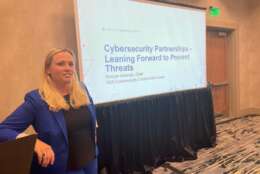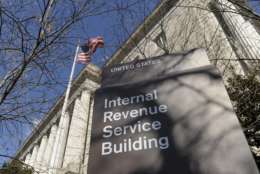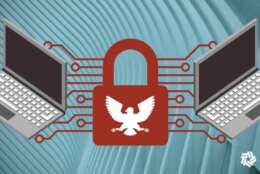Cybersecurity
-
In today's Federal Newscast, House Republicans are pressing Energy Secretary Jennifer Granholm on how she is abiding by the STOCK Act.
February 15, 2022 -
The recent increase in high-profile cyberattacks has shown that the federal government can no longer depend on the traditional perimeter-based defenses to defend their networks. Agencies are beginning to realize that they must adapt and adjust their strategies as new malicious tactics and technologies emerge.
February 14, 2022 -
For more than a year, the National Security Agency has been sharing cybersecurity threat information with defense industrial base companies. The idea is to correlate NSA signal intelligence with malicious activity the companies see on their networks.
February 14, 2022 -
Tim Odom, director of Business Technology Solutions Development at Vidoori, joins host John Gilroy on this week's Federal Tech Talk, to explain how high-performance testing can help federal leaders complete major tasks on time and under budget.
February 14, 2022 -
A new DoD CIO memo gives the Pentagon's formal blessing to security approvals that are based on continuous monitoring, and aims to create a more common lexicon for continuous ATOs.
February 14, 2022 -
But agencies, amid a surge in public demand to use government services digitally, as well as a rise in improper payments from COVID-19 stimulus programs, face growing pressure to make customer services easier to access, but also more secure.
February 14, 2022 -
The tiered approach is a feature of new contracts the NRO awarded last month to five synthetic aperture radar firms.
February 11, 2022 -
A federal cybersecurity agency is reviewing a report that alleges security vulnerabilities in voting machines used by Georgia and other states
February 11, 2022 -
In today's Federal Newscast, the Homeland Security and Governmental Affairs Committee is set to consider a bill combining incident reporting requirements and updated federal cyber standards.
February 11, 2022 -
DoD is rolling back an aspect of the plan that would have allowed some 40,000 companies to self-attest to their cybersecurity practices.
February 10, 2022 -
The Biden administration's push for improved customer experience couldn't come at a better time. More people than ever are trying to access federal agencies. Yet satisfaction with the experience is at an all time low.
February 10, 2022 -
Subpar cybersecurity on government networks puts the data of its citizens and potentially essential services at risk. As agencies work to plan for the upcoming year, they should pay special attention to these three trends in 2022.
February 10, 2022 -
The Defense Department is establishing stronger ties with colleges and universities focused on a single urgent issue.
February 10, 2022 -
Officials said the rapid response to the bug in the open source software library was successful in large part because of the Joint Cyber Defense Collaborative.
February 09, 2022 -
The Federal Deposit Insurance Corp. often makes headlines when financial disasters occur. It also performs daily work of bank examination, policy development and making banking data available to the public. Behind all of that is the division of administration which keeps the whole thing going.
February 09, 2022














